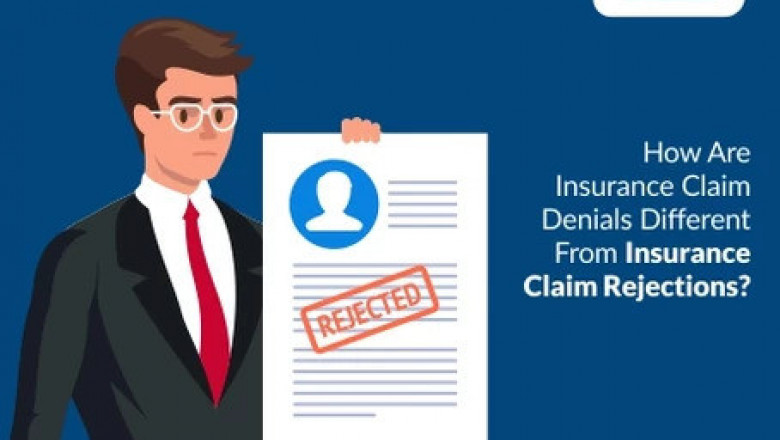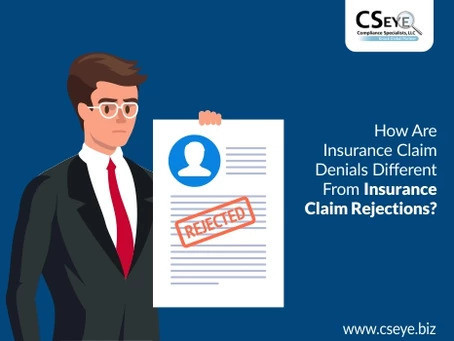views

Imagine you are an eye care doctor working in an optometry clinic. What is the one thing that can scare you apart from your treatment going wrong? It's the insurance claims that are either rejected or denied, leaving you clueless about the repayment of voluminous healthcare charges.
However, if you know what went wrong in the claim filing process, there are chances of a silver lining ensuring you will get the required money to clear all your dues. The only key is to know why insurance claim rejections and denials differ to select the right redressal procedure.
What Are Insurance Claim Rejections?
A claim is often rejected when errors are found in the application form even before it is processed and recorded. These data requirement lapses can range from a typographical error to a clerical blunder with inaccurate information.
When such errors are recorded, the claims are stopped from being disbursed, and the application is not processed. However, there is no reason to frown in the case of a rejected claim. You can file it again with accurate information to clear all the hurdles towards a full and final settlement.
What Are Insurance Claim Denials?
On certain occasions, the payments are obstructed even after a claim is processed owing to many reasons like duplicate claims, inaccuracy in pivotal information, and delayed scrutiny of the application. These cases are categorized as insurance claim denials.
If your claim is denied, the application cannot be resubmitted without an explanation of benefits acting as a base to ascertain why the claim was denied. Once there is enough data to back your claim, an appeal for reconsideration can be filed.
Post getting a clearance after a denied attempt, you will be required to send a corrected claim. However, you should always try to clear your claims in one go since the entire reconsideration process can cost you time and money!
Cases Of Claim Rejections And Denials
· Incomplete information - Incomplete or incorrect information can toss your claims from getting considered, let alone being processed. If there are evident gaps in the information, you should submit all the necessary details within 30 days of rejection/denial.
· Unnecessary treatment - If the insurance company categorizes your treatment as unnecessary, you can refute it by providing accurate ophthalmological records and diagnoses hinting towards the procedure. All the documents ranging from preliminary diagnostics by the ophthalmologist to medicine prescriptions should be attached.
· Clerical error - In instances where the form is immaculate at your end, there can be discrepancies on the company's side. This includes incorrect filing or duplicate generation, which causes override in the system, thus resulting in denials. You can raise an appeal to streamline these data inaccuracies.
How To Deal With Claim Rejections And Denials?
It is the duty of your insurance ombudsman to help you navigate situations of unaccepted optometric billing claims. However, it is extremely easy to lose track of your application status with the unending compliances, and therefore some expert help can definitely aid you in the process.
CS Eye is a one-stop solution for all your optometry billing and compliance needs. So you can relax and indulge in your day-to-day activities, while our experts focus on getting you the best deals along with on-time reimbursements for your claims.













